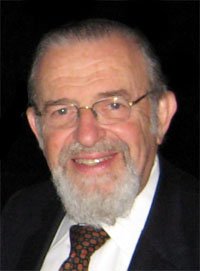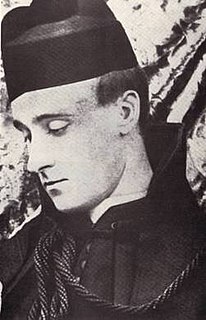A Quote by Norman Lamm
To appeal to contemporary man to revert, in this twentieth century, to a pagan-like nature worship in order to restrain technology from further encroachment and devastation of the resources of nature, is a piece of atavistic nonsense.
Related Quotes
Technology is neutral and sterile. Now, technology is the nature of modern man; it is our environment and our horizon. Of course, every work of man is a negation of nature, but at the same time, it is a bridge between nature and us. Technology changes nature in a more radical and decisive manner: it throws it out.
In the scale of life there is a gradual decline in physical variability, as the organism has gathered into itself resources for meeting the exigencies of changing external conditions; and that while in the mindless and motionless plant these resources are at a minimum, their maximum is reached in the mind of man, which, at length, rises to a level with the total order and powers of nature, and in its scientific comprehension of nature is a summary, an epitome of the world.
Jesus Christ was God - the Personal God become man. He has manifested Himself many times in different forms and these alone are what you can worship. God in His absolute nature is not to be worshipped. Worshipping such God would be nonsense. We have to worship Jesus Christ, the human manifestation, as God. You cannot worship anything higher than the manifestation of God. The sooner you give up the worship of God separate from Christ, the better for you.
Nature is man's inorganic body -- that is to say, nature insofar as it is not the human body. Man lives from nature -- i.e., nature is his body -- and he must maintain a continuing dialogue with it is he is not to die. To say that man's physical and mental life is linked to nature simply means that nature is linked to itself, for man is a part of nature.
The century would seek to dominate nature as it had never been dominated, would attack the idea of war, poverty and natural catastrophe as never before. The century would create death, devastation and pollution as never before. Yet the century was now attached to the idea that man must take his conception of life out to the stars.
The only solid piece of scientific truth about which I feel totally confident is that we are profoundly ignorant about nature... It is this sudden confrontation with the depth and scope of ignorance that represents the most significant contribution of twentieth-century science to the human intellect.
Secondly, man sins against nature when he goes against his generic nature, that is to say, his animal nature. Now, it is evident that, in accord with natural order, the union of the sexes among animals is ordered towards conception. From this it follows that every sexual intercourse that cannot lead to conception is opposed to man's animal nature.




































